IN DEPTH
Every one of the seven Springfield Board of Education candidates has said it at some point — behavior is one of the biggest issues in the race, and one of the biggest problems faced in Springfield Public Schools. It might be the biggest.
Ever since behavior was a key issue in the 2023 school board election, it has barely left the spotlight in this school year. Springfield Public Schools rolled out a new system for managing behavior.
Middle and high schools changed their start-of-year activities to focus on expected behaviors. Student handbooks were sent home and signed by parents, to ensure everyone knew the new ways of behaving.
But teachers, through reports to the Springfield NEA, said that students were getting away with much more bad behavior, and found themselves increasingly at risk. A demonstration led by the group, held before a board meeting, drew more attention to the issue.
Two instances of violence at a middle school and high school led school board member Steve Makoski to suggest a return to corporal punishment, and cast some doubt on the Springfield school district’s newly started system.
On April 2, seven candidates will run for three open seats on the Springfield Board of Education. Incumbents Danielle Kincaid, Scott Crise and Maryam Mohammadkhani are running against challengers Landon McCarter, Susan Provance, Kyler Sherman-Wilkins and Chad Rollins.
The seven talk plenty about the subjects of behavior and discipline — that includes in recent podcast interviews with the Hauxeda. While all seven regard it as the top issue this election, they have different ideas about what the district’s approach should be.
SPS sets plan to address student behavior
In December 2022, the school board approved a five-year strategic plan. One of its key provisions was for maintaining positive classroom environments conducive to teaching, and it called for a review of existing behavior monitoring and implementing consistent programming across the school district.
Kincaid, Crise and Mohammadkhani were all on the board the year that the plan was approved, and they all voted in favor of it.
Since the plan’s approval, SPS has implemented a system known as Positive Behavioral Interventions and Supports (PBIS), along with other tactics. The system was part of a 15-step plan introduced by Superintendent Grenita Lathan in May 2023.
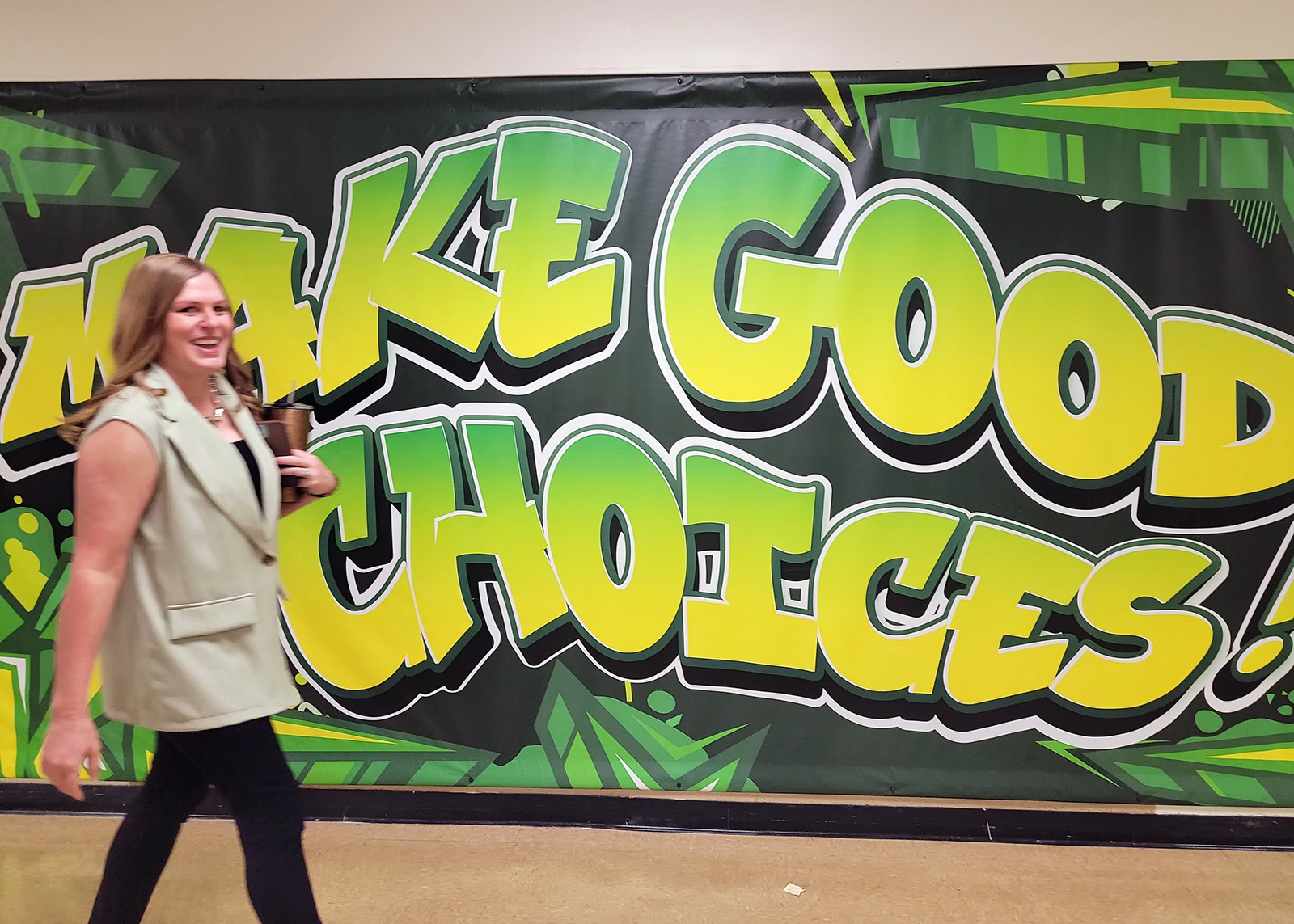
PBIS works by outlining expectations for behaving while at school. When students act up, instead of being commanded to stop doing something out of expectations, they are redirected toward something that is allowed. A child running down a hall would be told, “Walk, please,” instead of “Don’t run.”
PBIS works in tiers, where its first tier applies to everyone in a building. Tiers 2 and 3 are for students who have repeated problems following the rules.
Both parents and students saw changes to back-to-school routines: Students at middle and high schools received a lot more instruction at the start of the year about behavior expectations, and each student was given a student handbook for home. Parents were expected to sign the handbook for receipt.
Behavior worsens, teachers association claims
As the 2023-2024 academic year progressed, however, the district found itself issuing more discipline referrals than ever before. At the same time, Springfield NEA president Laura Mullins said teachers were being asked to stop issuing so many discipline referrals, and that punishments for misbehaving students seemed light and ineffective.
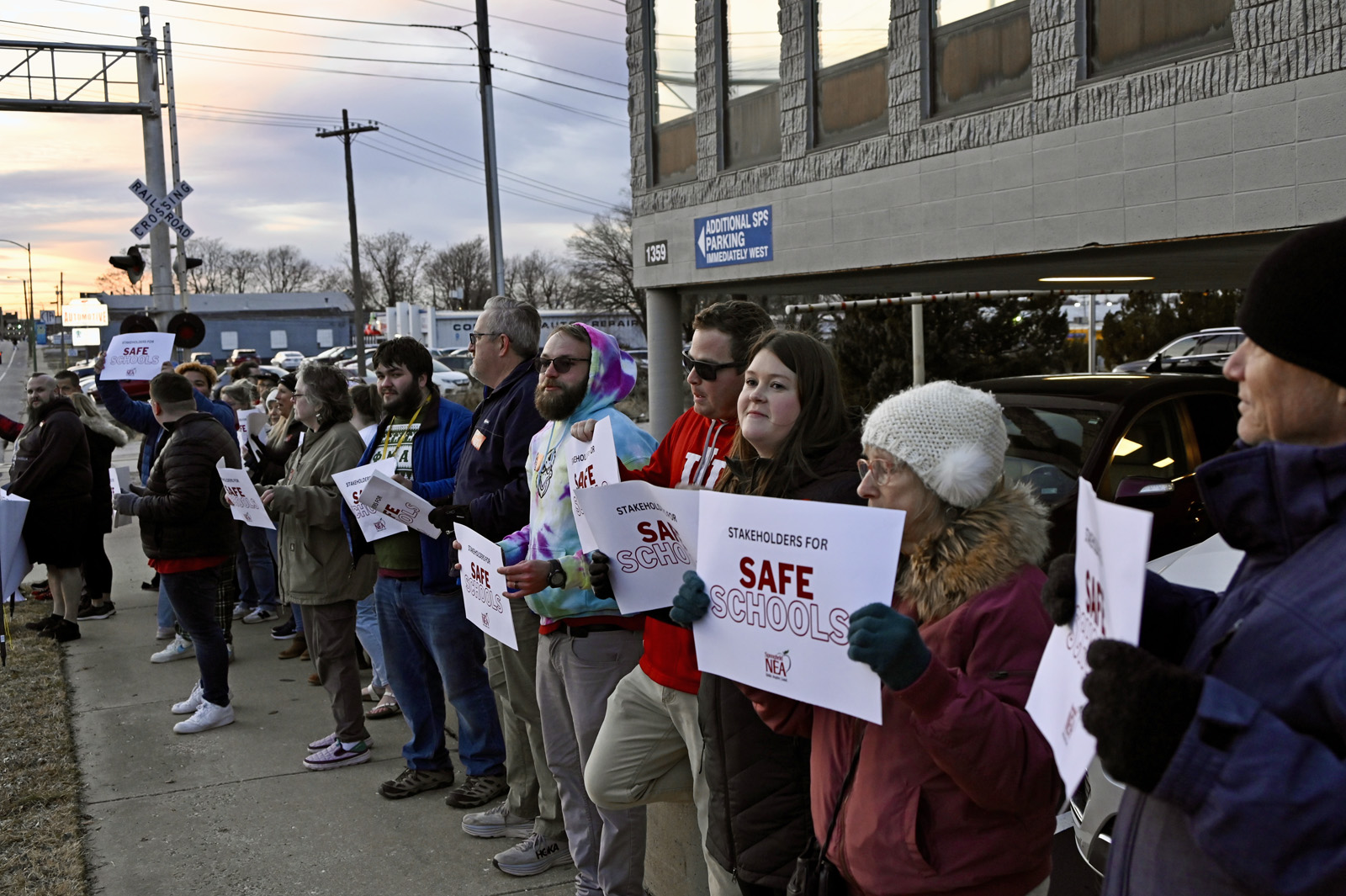
After telling the school board in November 2023 about repeated bullying and threats of physical harm, teachers held a protest outside a school board meeting to raise awareness of threats to their safety.
Two particularly severe instances in January 2024 further focused attention on student behavior. A student at Hickory Hills Middle School was sent to the hospital with severe injuries after being jumped by three classmates in a hall between classes, and a staff member at Parkview High School was injured breaking up a lunchtime fight. The inciting students in both incidents were detained by Greene County juvenile authorities.
Those two instances led board member Steve Makoski to speak during a meeting about four ways to decrease bad behavior. Holding up a paddle, he suggested a return to corporal punishment as one of those four strategies.

After that meeting, Makoski said he had some doubts about the district’s PBIS plan.
“PBIS needs to be at home, conscious discipline starts at home,” Makoski said. “I can’t say I have a wholehearted belief in PBIS, and I don’t have full confidence in conscious discipline. It might be part of the solution, but are there other opportunities that maybe we are not using.”
Candidates present plans for discipline

All seven candidates in the April 2024 election say student behavior is a top issue that needs to be addressed. All of them advocate more behavior training for teachers. Their overall approaches to discipline differ, however.
Kincaid, Crise and Mohammadkhani said that they had no second thoughts similar to their colleague Makoski’s.
Sherman-Wilkins and Mohammadkhani agreed that PBIS should be one of several tactics educators employ in Springfield. Mohammadkhani said that PBIS is a good preventive measure, but more must be done to handle disruptions in school as they happen. Sherman-Wilkins said that while PBIS has a track record of success, a district the size of Springfield’s can’t rely on only one tool.
Crise said the school district’s rollout of PBIS was a good first step, but continued reinforcement and training was needed. He and Kincaid said that more support and training should be given to teachers, paraprofessionals and others.
McCarter and Rollins said they did not like what they heard from teachers about PBIS and were inclined to reject it. Rollins further suggested ensuring a school resource officer was present at every school
Provance said she favors the PBIS system, but does not like hearing reports of delayed enforcement. She advocates for offending students to be removed from classrooms as quickly as possible, and explaining to them how their behavior affected other students.
Mohammadkhani and Kincaid agree that teachers and administrators should be the ones presenting specific plans, because they are the ones in classrooms with the expectation of managing them.
CANDIDATE VIEWS
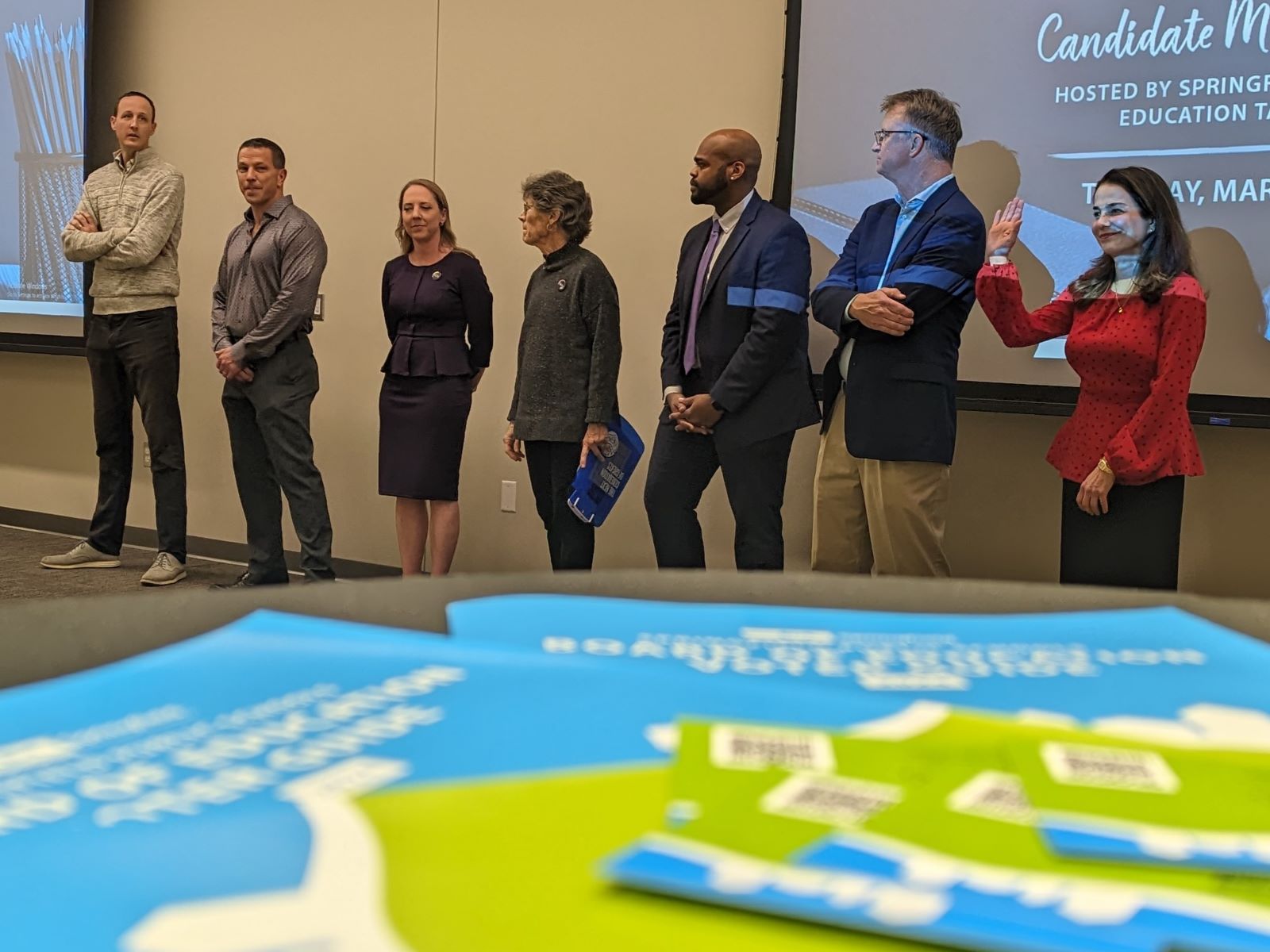
The seven candidates for Springfield Board of Education discussed behavior, discipline and the district’s approach to both in our Candidate Conversations podcasts. We asked the following question of each candidate:
“To address behavior, the district is in the first year of installing Positive Behavioral Interventions and Supports across the entire district. Yet conversations at meetings and among community members indicates behavior is still a problem in classrooms. Do you think PBIS is still the answer, and how do you feel about its rollout?”
The following are quotes from those interviews. You can listen to their full answers here.
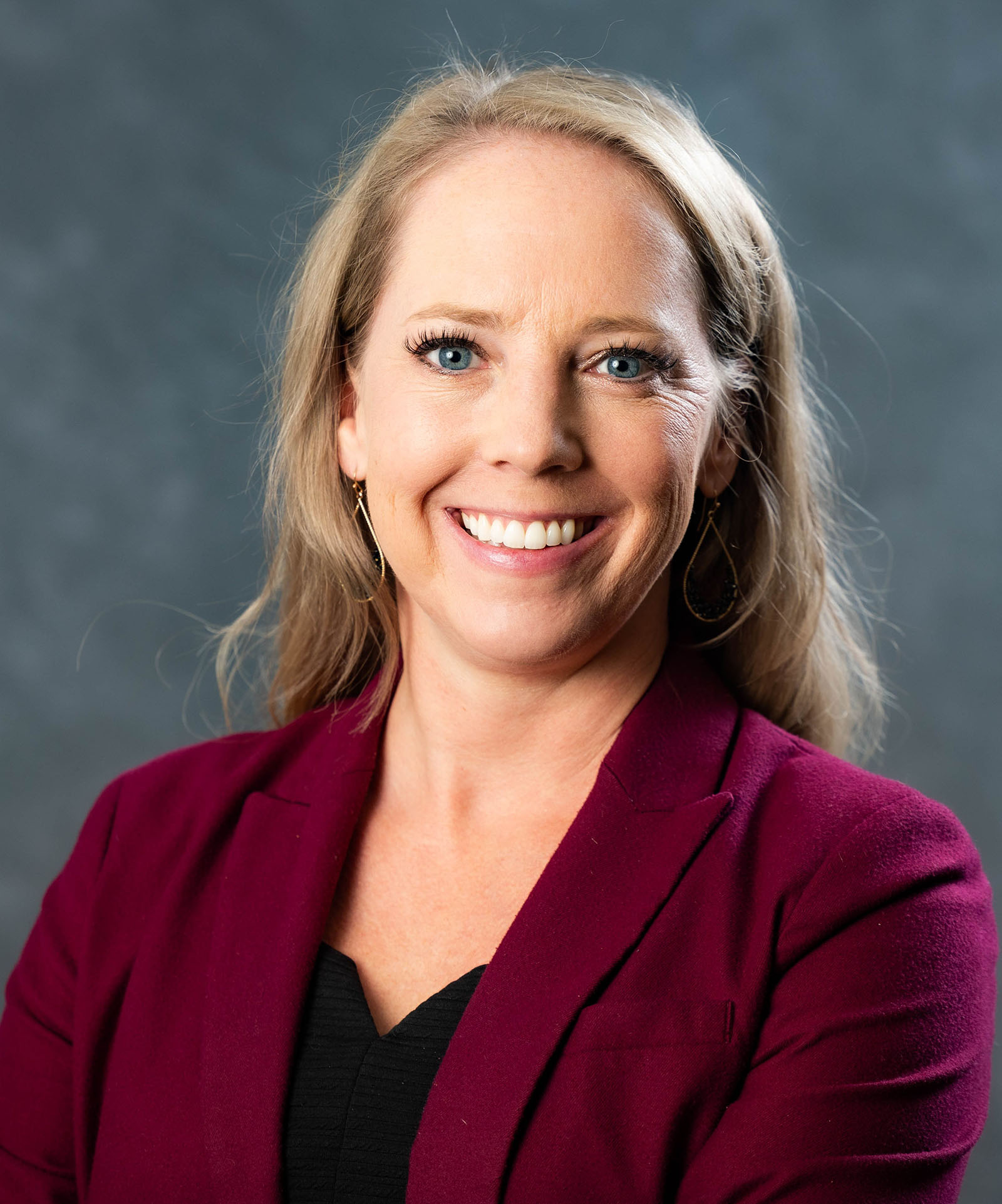
“I am hearing that more training needs to be done. I am hearing that more support, such as paraprofessionals, needs to be provided. And just more education, not just for our teachers and educators, but also for our parents of what can be done at home, so that the discipline looks similar based on if you are at school or you are at home.
“We’re going to respect our teachers and educators. We’re going to respect our parents and guardians and if … decisions are made by a particular student, there may be consequences to those decisions and I support that fully.”
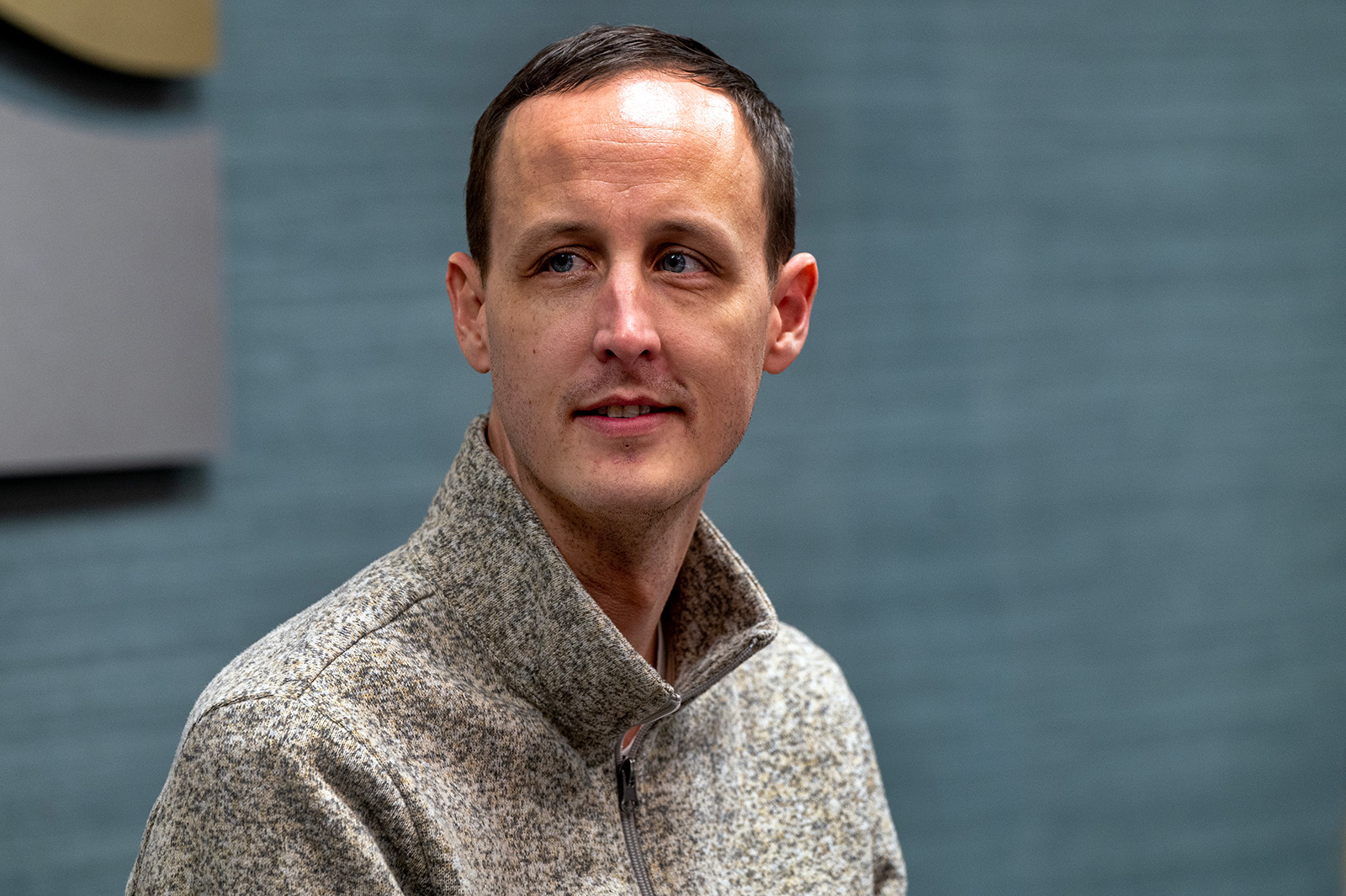
“I asked (a teacher) does this make your job as a teacher harder, or does it make it easier, and she said it makes it harder, so I said that I was against it.
“I really feel very strongly that we are asking teachers to do too much now. We’re asking them to not only be teachers in the classroom, but now behavior professionals and PBIS implementers and social learning experts, not to mention managing distractions that are all over the classroom … I really believe that this particular issue of discipline, or lack thereof, is a core issue that we have to fix as soon as possible.”
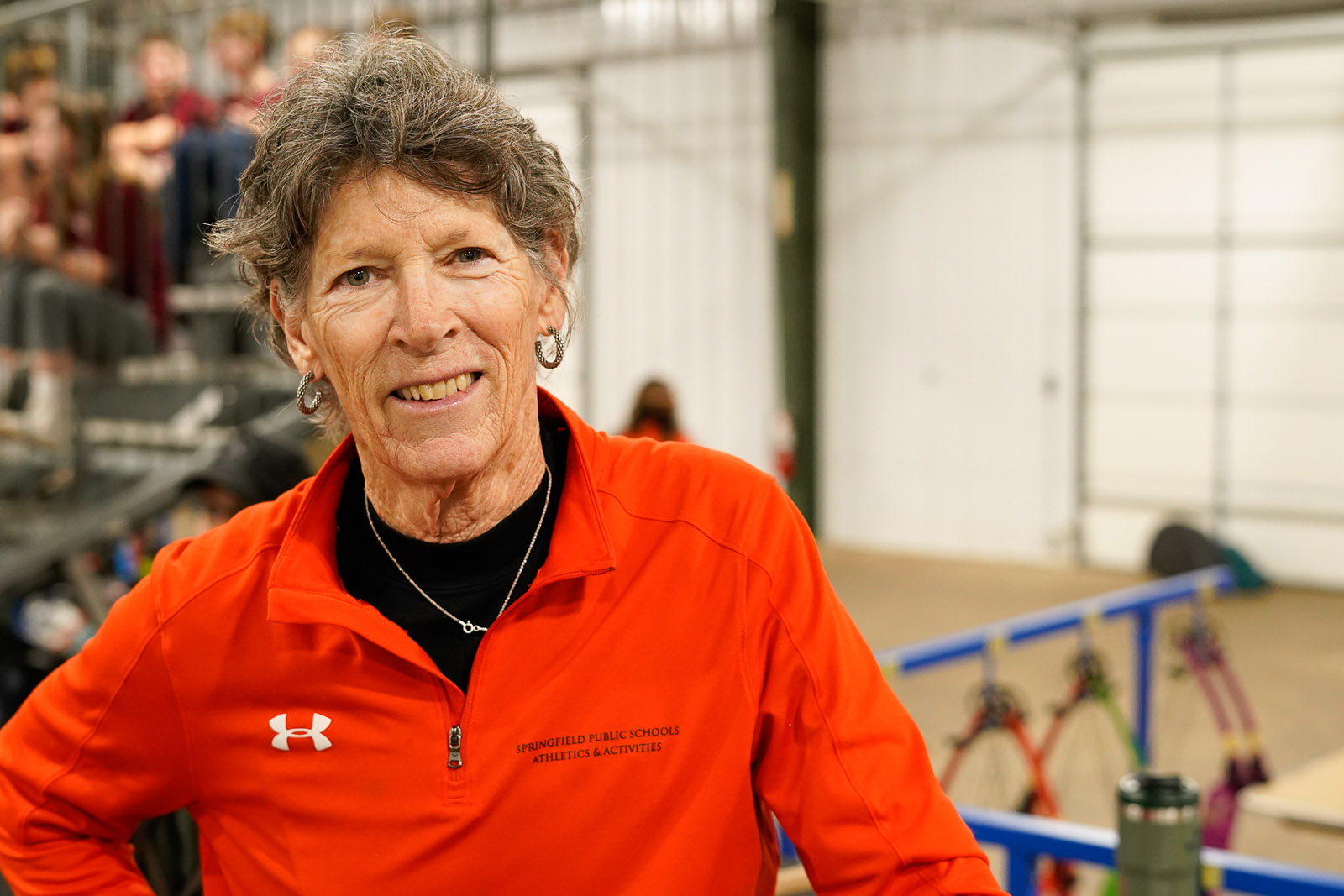
“You explain to them that you kept your friends from learning. We come to school to learn. They need to be removed from the classroom. Not as a 100% punitive action, though. There are so many positive things that can be done when they are removed from the classroom … When you’re ready to go back to the classroom, you learn.
“I am generally in support. Now, I don’t like the lag time … a child needs to understand there is an action and a reaction, there is an action and a consequence. But if they need to be removed, they need to be removed, and they need to be told the reason. And when they can come back, it’s kind of the old-fashioned ‘Love and Logic.’”

“I think it is still the answer. We have this plan in place, now we need to make sure it is consistently being followed in the buildings. And we need to make sure everybody in the buildings, our students, staff and teachers, are properly trained for PBIS. Then we need to continue to hold students and parents accountable so that they know violence will not be tolerated at any time.
“We started this year out in a good way, sending student handbooks home and making sure they were signed by parents. That was a good first step. But we need to make sure that everybody is properly trained. If a discipline situation arises that requires involvement of the building principal, they should consistently enforce the student handbook.”
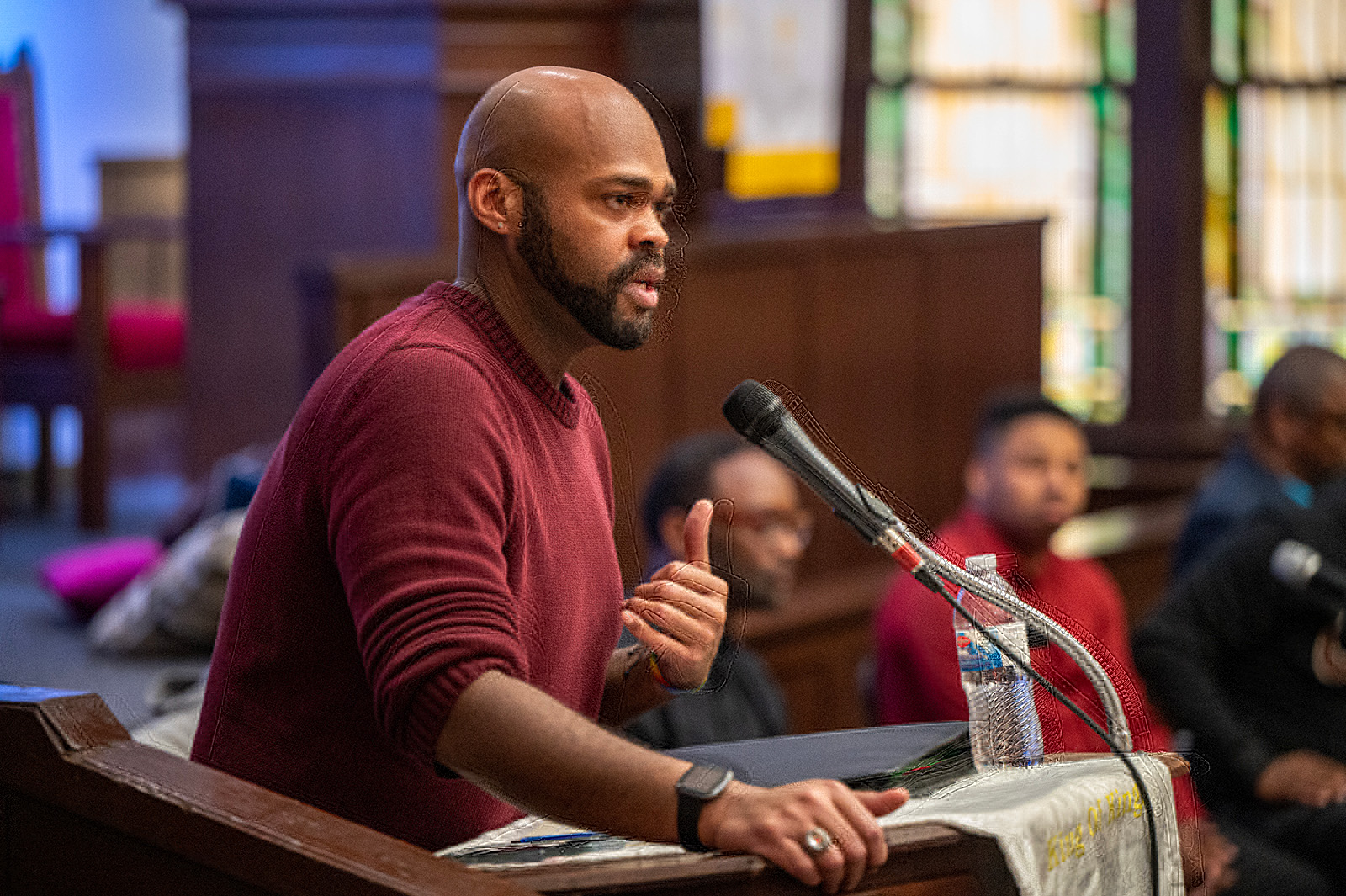
“I’m constantly reminded that there is no cookie cutter, no one-size-fits-all policy that just works across the board. I do think these strategies can work, and I think there is some evidence that they do work in certain situations.
“I am a little hesitant when you have a district as diverse as ours, that has students with various different needs, different challenges, unique challenges that they might face, that this particular approach works in all situations for every single student … any attempt to address this I think has to be really rooted in the data. It has to be written in best practices and research.”
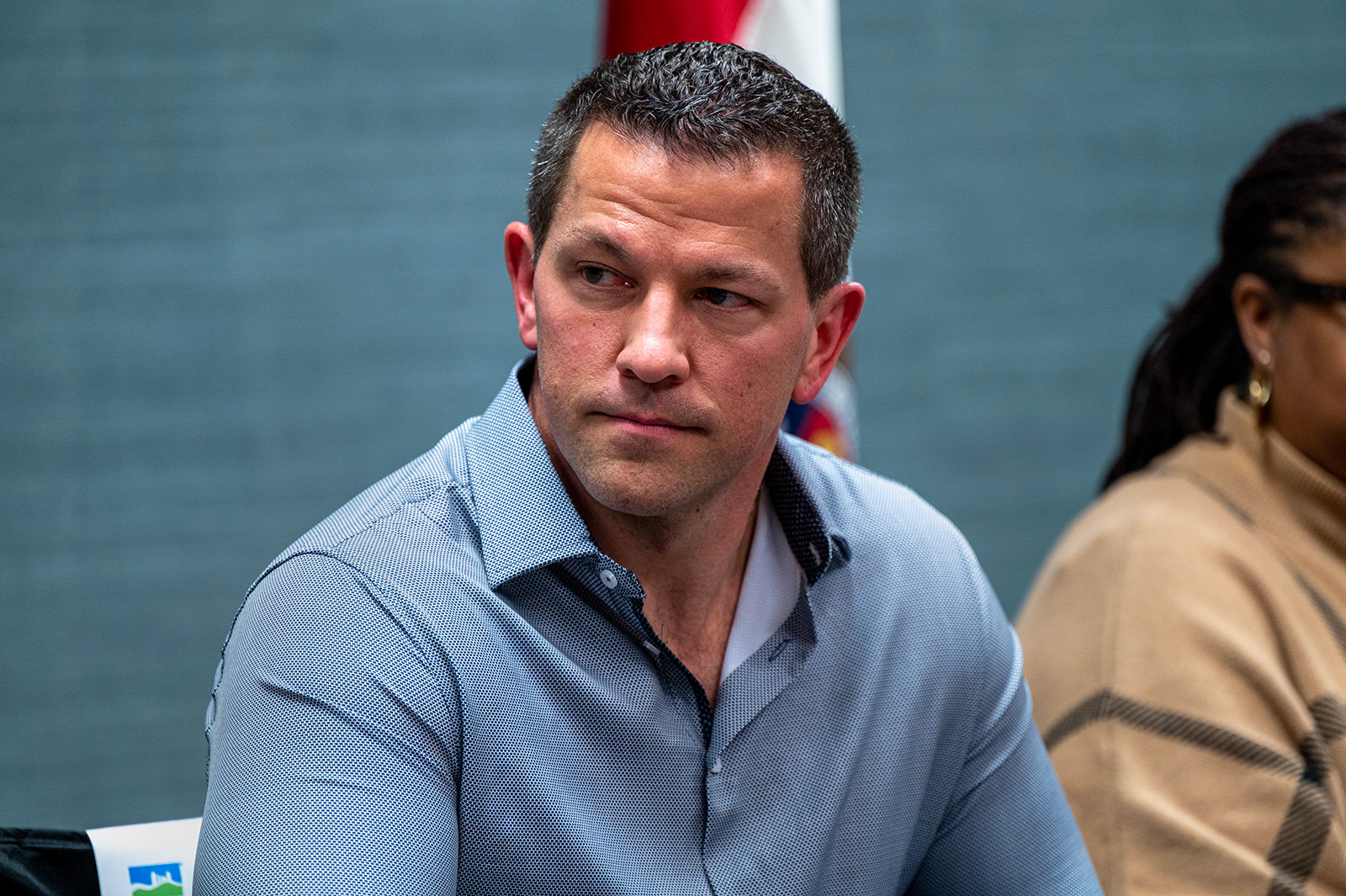
“When I talked to teachers about PBIS, what they have told me is that they don’t think it is very effective right now. It’s not that it may not be an effective plan and procedure, but they feel that sometimes when kids do things, the consequences don’t match the actions, or what the offense was.
“What I would like to see , and I think this would be a big help … I’ve had teachers talking about the implementation of resource officers at every school. So that way, you have that go-to person that can help support discipline. Their job is to form bonds with these kids and a sense of community. And they know that this person here is the one who is going to help enforce that discipline.”

“The answer is multi-pronged, and who’s going to put forth those answers is going to be the staff and administrators who are in our buildings. It’s not going to be the board of education, we want to support the strategies that come to us … I want to support the solution and provide the means to implement the solution brought to us by those experts.
“PBIS is the proactive arm that helps strengthen peer interactions , and it brings in positive behavioral incentives. But absolutely must piggy back on to that the supports that teachers need to maintain a disciplined environment, free of distractions, where the teacher is the principal authority. And we do need appropriate reactive measures. PBIS is a great proactive measure.”

